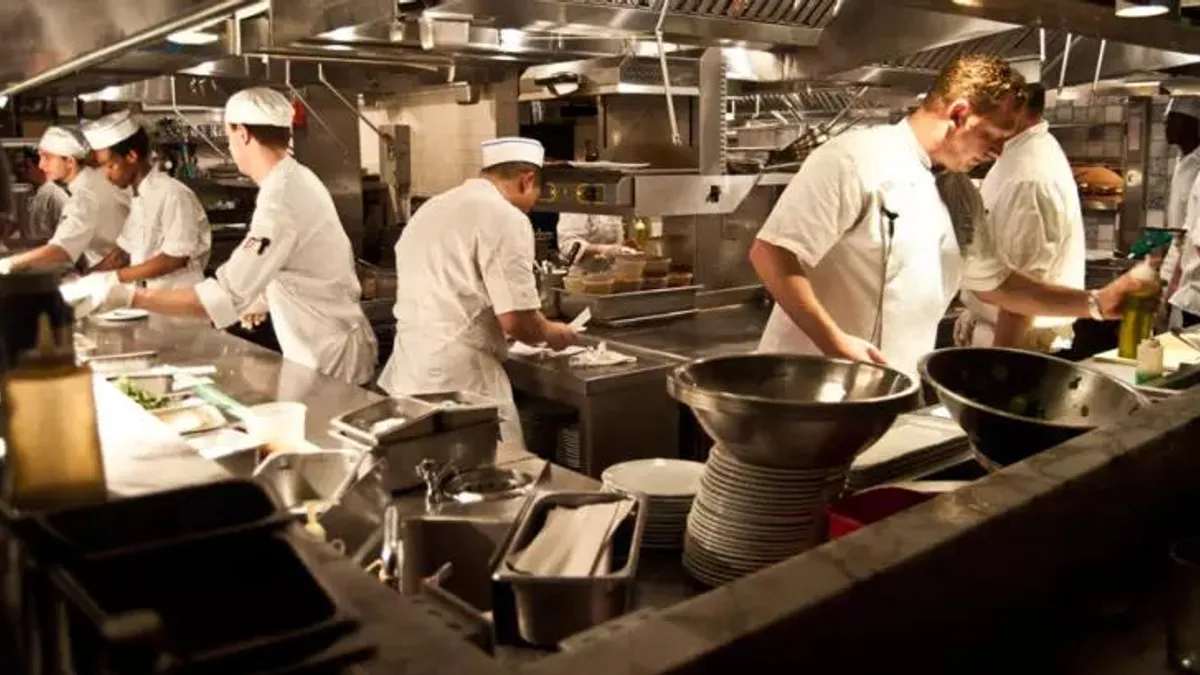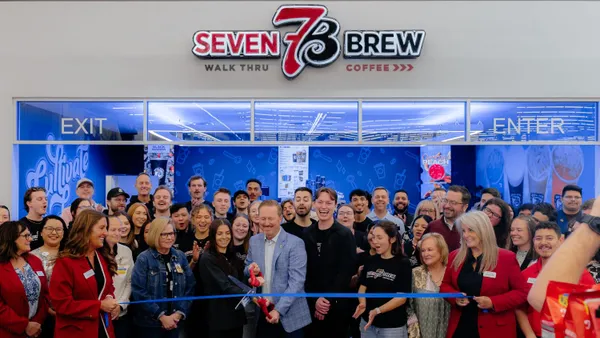Dive Brief:
- Nearly two-thirds of chefs suffer from depression, and 1 in 4 back-of-house restaurant workers report physical abuse on the job, according to research from FairKitchens, an advocacy group formed by Unilever Food Solutions. More than half feel “pushed to the breaking point,” while 74% say they don’t sleep enough — to the point of exhaustion.
- FairKitchens offers guidance for chefs to sit their teams down in “An Hour for Us,” where employees can talk openly (one of the initiative’s five core TEAMS values) and support one another. The values also encourage training and mentoring, inclusivity and relaxation.
- With support from uniform makers Chefwear, the American Culinary Federation and industry organizations Chef’s Roll and Chefs with Issues, FairKitchens announced its research at the Global Restaurant Leadership Conference in Dubai last week, reported Restaurant Business. The coalition, which includes more than a dozen restaurants and industry players, including Coca-Cola Europe and Subway, strives to resolve staffing issues plaguing kitchens around the world by improving the physical and mental health of back-of-house workers.
Dive Insight:
Restaurant work has long been associated with competitive, rough-around-the-edges work environments, but FairKitchens aims to shine a light on the fact that some of these kitchens are actually very toxic workplaces. As staffing shortages continue to cut into restaurant quality and customer experience, it's especially imperative for operators to take a hard look at their company culture.
Kitchen work doesn’t suit everyone, but the allure of celebrity chefs like the late Anthony Bourdain and competitive cooking shows are a big draw. After Bourdain’s death in June, chefs talked more openly about the incredible stress induced by long hours on your feet, often with drugs and alcohol often on the other end of that arduous shift.
Food writer Kat Kinsman, one of the founding members of Chefs With Issues, said culinary professionals approached her with tales of their struggles after she wrote about her own anxieties. These issues have long been prevalent in restaurant kitchens — they just haven’t been discussed as openly as they are now.
It’s not easy work, and the the pay often lags behind the skill and effort required: cooks make a median wage of $12.71, or about $25,000 a year. The highest bracket makes $36,000, according to the Bureau of Labor Statistics. In Alaska, one of the highest-paying states in the industry, cooks earn a mean salary of $29,000. The federal poverty level for a family of four in Alaska falls around $31,000, slightly higher than the rest of the country. And the hours everywhere, of course, push into the double-digits.
Whether working at a franchised chain restaurant or an urban hotspot listed in Bon Appétit's Top 10, cooks are often underpaid and overworked, leaving little time for self-care. Though companies from Starbucks to Shake Shack offer robust benefits packages, the industry still carries high rates of uninsured or underinsured workers. Some restaurants even reported that when they offered, employees didn’t bite, unless they made closer to $45,000 a year.
All of these stresses, financial and physical, add up to a taxing work environment that can feel insular and confining to those stuck behind the scenes, away from customers. FairKitchens wants to help fix that disparity, and hopes that doing so will attract more qualified candidates to the back-of-house. It would be wise of restaurants to take the group's team-building suggestions seriously, as labor shortages and rising wages weigh on the industry.














